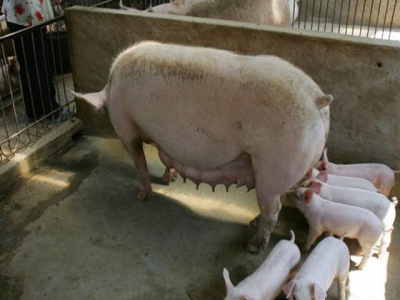Chinese researchers isolate African swine fever virus

The Pig/HLJ/18 virus belongs to Genotype II and is genetically close to the ASF viruses prevalent in Eastern Europe.
Researchers at the Harbin Veterinary Research Institute of Chinese Academy of Agricultural Sciences say they have successfully isolated the first African swine fever virus from a field outbreak sample in China. Pig/Heilongjiang/2018 was isolated in a spleen sample from a pig at an ASF outbreak farm in Jiamusi city, Heilongjiang province, on Sept. 2, 2018 and was characterized by use of the haemadsorption assay, electron microscopic observation and Western blotting and immunofluorescence assays.
The Pig/HLJ/18 virus belongs to Genotype II and is genetically close to ASF viruses prevalent in Eastern Europe. The scientists say the virus replicates systemically in pigs, is highly virulent in pigs and is efficiently transmissible among pigs.
During the study, pigs were inoculated with different dosages of Pig/HLJ/18 and started to show early disease signs by three to five days post inoculation. All of the animals died between six to nine days p.i. Two contact pigs showed the onset of early disease signs on day nine post contact, and died on days 13 and 14 p.c., respectively, indicating that the Pig/HLJ/18 virus causes very acute disease in specific-pathogen-free pigs; its incubation period was three to five days in virus-inoculated pigs and about nine days in the contact pigs. Of note, the researchers say the disease signs and necropsy changes caused by ASF virus are similar with those caused by other pig acute diseases, such as classical swine fever and highly pathogenic porcine reproductive and respiratory syndrome.
It is still not known if a single virus invaded China and caused all of the outbreaks or if different ASF viruses are responsible. The researchers say more viruses will need to be isolated and analyzed to fully understand the spread of the disease and to develop an effective control strategy.
As of March 22, there have been 114 ASF outbreaks detected in 28 Chinese provinces. More than 950,000 pigs have been culled in an effort to halt further spread.
Có thể bạn quan tâm
 Drone may help reduce use of antibiotics in livestock
Drone may help reduce use of antibiotics in livestock Drones equipped with thermal imaging cameras have been buzzing over a research feedlot near Amarillo, as researchers develop test methods to identify feverish
 Facial recognition technology aims to detect emotional state of swine
Facial recognition technology aims to detect emotional state of swine Early identification of pig health issues gives farmers opportunity to improve animal well-being by tackling problems quickly.
 Grass protein to be tested in organic pig feed
Grass protein to be tested in organic pig feed Aarhus researchers in Denmark to determine if clover grass protein may replace soybean meal in organic swine feed.